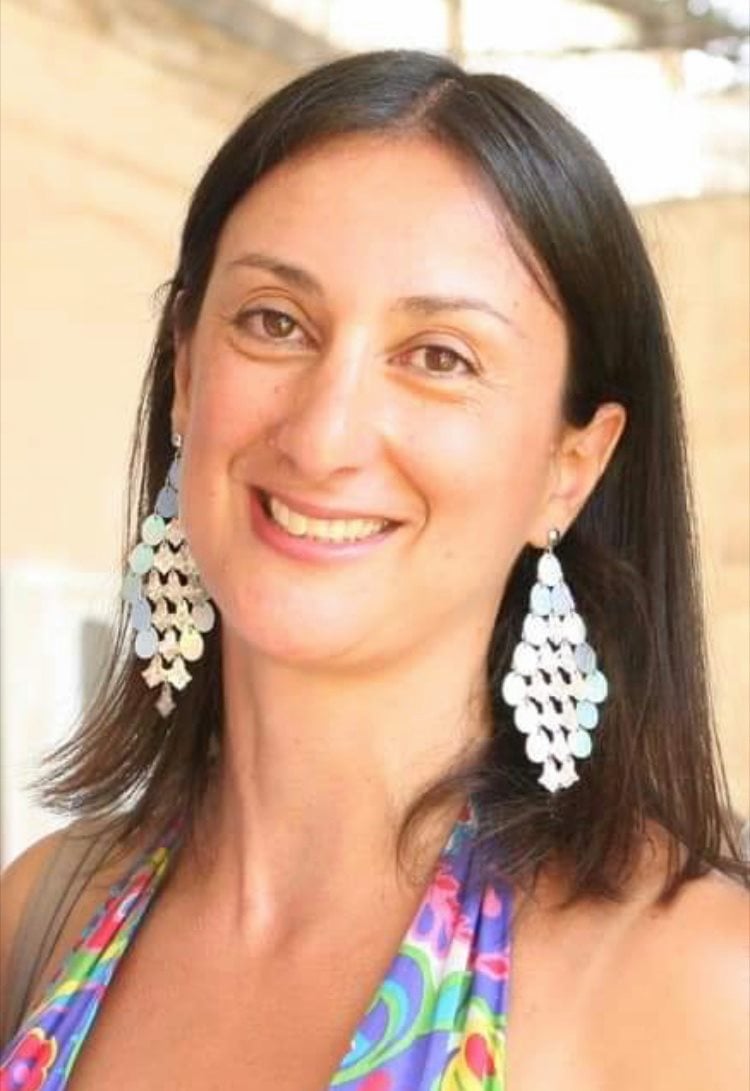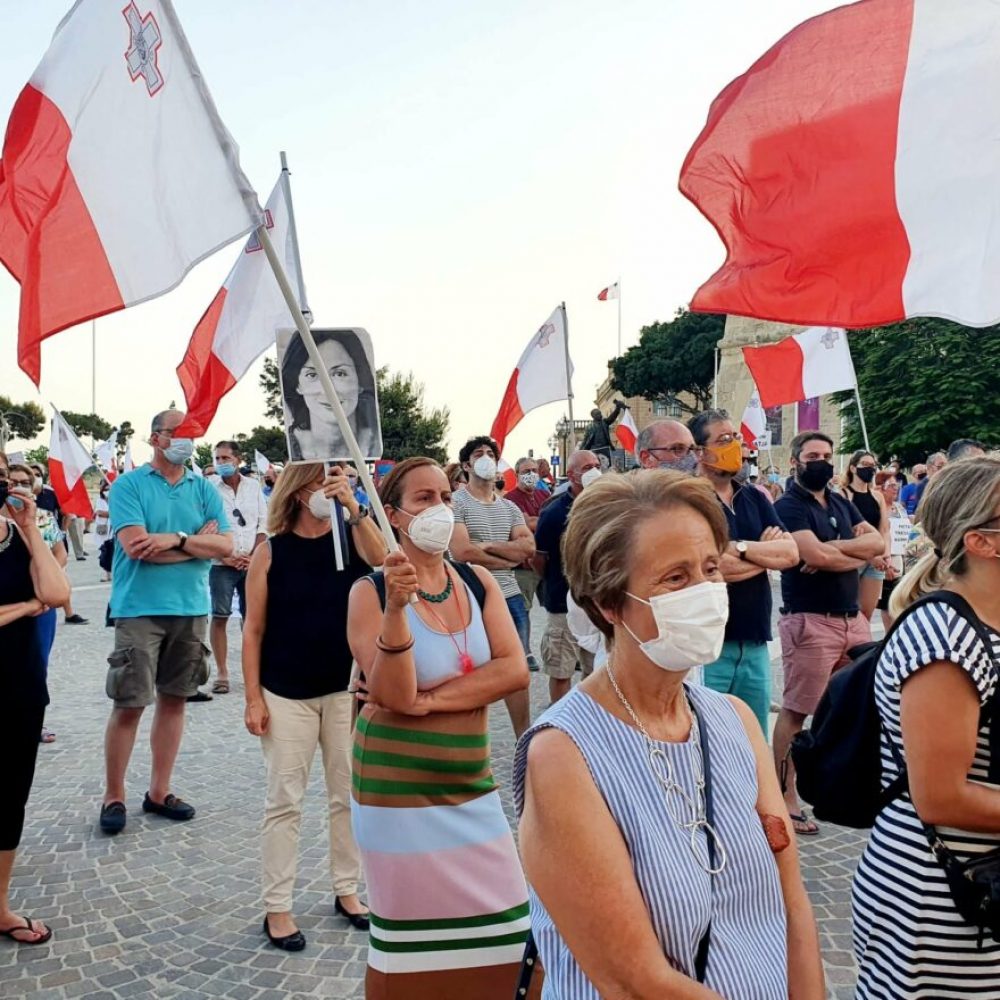A vicious campaign of political propaganda aimed at dehumanising and isolating Maltese investigative journalist Daphne Caruana Galizia was orchestrated by the State, and it played a key role in her assassination.
That was the conclusion of the independent public inquiry into the country’s most shocking political murder.
“The board cannot do anything but conclude that there was an orchestrated plan to neutralise the work of the assassinated journalist,” the report said.
Caruana Galizia’s keen investigative instincts and scathing critiques had made her a thorn in the side of previous Nationalist Party administrations. But dealing with journalists is part of a politician’s job — even journalists who expose mismanagement and faulty judgement.
This attitude changed when Joseph Muscat’s Labour Party was elected to power in 2013. Supporters and politicians seemed to be operating under the belief that the Party was the State, and an attack on Labour was an attack on Malta.
Those lines blurred even further when business and political interests merged, and large public projects were begun that, according to the inquiry, would “fatten certain people’s pockets through connections they had with the public administration.”
Those controversial projects included a public-private partnership that saw the government sign over several hospitals to known fraudsters, and the power station deal the journalist was investigating at the time she was killed.
The accuracy of Caruana Galizia’s reporting meant that business and political interests had to discredit her writing lest their illicit plans be interrupted by legal or political action.
“This ‘hot’ information could have irredeemably prejudiced not just those who were taking an inadequate advantage of projects they were involved in,” the report said, “but also the stability of that same government.”
The confrontation reached a peak with the publication of the Panama Papers, which exposed secret companies set up by the energy minister and the prime minister’s chief of staff to receive kickbacks from a Dubai entity called 17 Black.
It would only be revealed after Caruana Galizia’s death that 17 Black was owned by Yorgen Fenech, scion of Malta’s richest business family, a prime mover in the power station deal, and the man accused of financing the journalist’s murder.
“Daphne Caruana Galizia was subjected to attacks from elements in public administration,” the report said, “attacks that increased proportionally with revelations published by the journalist of alleged irregularities and scandals in the carrying out of large projects.”

The public inquiry concluded: “The political reaction to this confrontation was primarily a sustained campaign of personal attacks of denigration and hatred, instances of verbal abuse, abusive pursuit and a vice-like grip on her finances through legal means.”
The board found that this plan succeeded in isolating the journalist because “it was centrally organised from the office of the prime minister”, led by member of parliament and party whip Glenn Bedingfield, a close personal friend of Muscat.
Bedingfield ran a blog dedicated to attacking Caruana Galizia while working at the prime minister’s communications office. The unrepentant MP defended his actions when testifying before the public inquiry, saying his website was “an equal and opposite reaction” to Caruana Galizia’s writing.
The board concluded that there was nothing “equal” between the writings of the public official and the journalist, given that Bedingfield had a media house, the power of a governing political party, and near-infinite resources at his disposal.
The inquiry report also noted how other government officials, such as Neville Gafa (a person of trust in the office of the prime minister) shared Facebook posts with images of witches, and disgusting creatures with Caruana Galizia’s face photoshopped on them, and even stalked her and uploaded photos of the journalist going about her private life.
Purposefully adding Caruana Galizia’s face to a Labour Party campaign billboard together with members of the Nationalist Party served to identify her as a member of the opposition — and therefore an opponent of Labour Party supporters.
In his testimony before the inquiry, the former prime minister acknowledged that his government considered Caruana Galizia the only opposition in the country.
The public side of the government’s campaign shocked outside observers who were unaccustomed to seeing such behaviour in a European Union Member State, but the campaign playing out behind the scenes was far more disturbing.
An extensive six-month investigation by The Shift into the secret Facebook groups working to dehumanise Caruana Galizia proved pivotal to the conclusions reached by the inquiry. The evidence presented to the board from this investigation has been made available for the first time.
These reports confirm the extent to which partisan propaganda by government members and other state functionaries contributed to the risks faced by the journalist. This evidence is now part of an extensive body of international research documenting the state-sponsored harassment of journalists.
The Shift’s undercover investigation into the secret and closed Labour Party Facebook groups began when journalists and researchers were given access by a whistleblower to numerous previously closely guarded groups.
These groups continued their dehumanisation campaign well after Caruana Galizia’s death while also discrediting government critics such as the Daphne Project, local journalists, activists, and opposition MPs.
However, it was the involvement of government officials and public service employees in actively administering and moderating the groups “including screening members for PL membership and curating content by removing critical views,” that set these groups apart.
Those in power dismissed such behaviour under the guise of freedom of speech, but the public inquiry board wasn’t fooled.
In its conclusions, the board found that the journalist’s isolation and dehumanisation, coupled with the inaction of law enforcement and other authorities, helped create an atmosphere of impunity.
“The denigrating campaign that demonised Daphne Caruana Galizia created a scenario of impunity and a favourable climate for anyone who wanted to eliminate her while facing the least possible amount of consequences,” the board said. “The campaign against her essentially encouraged the people committing the crime.”
“It is certain that they had or felt like they were assured that they would be protected by those who wished to silence the journalist the most.”
Murder and torture are universally taboo, but dehumanisation of the “other” is a powerful psychological tool that can be used to justify them. Once someone has been dehumanised, they can be denied consideration, compassion, and empathy, and the psychological distance this creates can reduce or overcome our instinctive aversion to aggression and violence, with horrifying results.
The most tragic episodes in the history of the 20th century were a demonstration of just how powerful such manipulation can be.
The following project is weekly Maltese Roundups prepared by The Shift News (Malta) offering the latest news in Daphne Caruana Galizia case.

